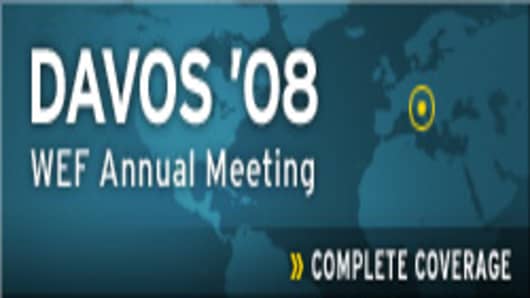Security stepped up in Davos Thursday, literally, with the arrival of delegations from Afghanistan and Pakistan. Both countries have the potential to be major destabilizing forces for the Middle East and South Asia and face the challenge of trying to grow and modernize their economies while battling terrorism.
The threat of terrorism is evident by the sheer number of security personnel and police guarding government officials from both countries at the Congress Center. Bodyguards for Afghanistan President Hamid Karzai didn't snake their way though to one of the meeting rooms, they cleared a path, physically scattering reporters and CEOs alike.



